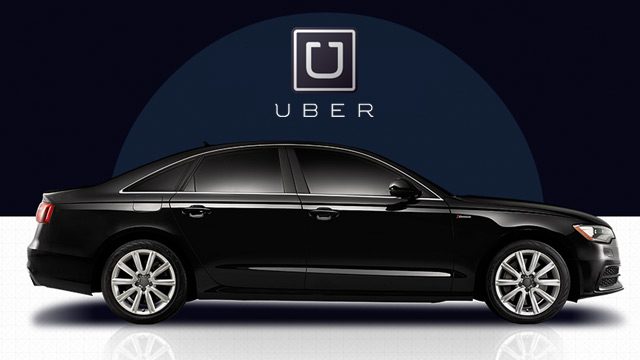SUMMARY
This is AI generated summarization, which may have errors. For context, always refer to the full article.
MANILA, Philippines – While popular and now controversial mobile-based application Uber has been staunchly defended by its patrons and the online world, Philippine taxi operators view it as “unfair competition.”
The company, which has been met with criticism in almost all of the countries it has expanded to, has been making national headlines in the Philippines after government decided it should regulate its partner vehicles and perhaps, even Uber itself.

A little over a month ago, one of Uber’s partner vehicles was caught in a sting operation prompted by the complaint of a taxi operator association. (READ: Philippine congressmen want Uber to stop operations ASAP)
While the company maintains its partner vehicles are not “colorum” or illegal, the Land Transportation Franchising and Regulatory Board (LTFRB) thinks otherwise.
The board will now be deciding how to regulate the private vehicles that Uber partners with, and determine if it has the power to regulate the app itself.
Philippine National Taxi Operators Association president and Quezon City councilor Bong Suntay said operators have nothing against “new technology” but only want a level playing field.
Rappler spoke with Suntay about why they’re raising the alarm over Uber, the challenges of a taxi operator in the Philippines, and how a compromise may be reached.
(Note: Parts of the interview have been translated from Filipino to English.)
Why complain about Uber now?
The problem in the beginning was that LTFRB Chairman Winston Ginez did not know where we could send a letter of complaint against Uber. We had a difficult time finding out where they were operating from. That made it difficult. Until that time when we suggested: hey, let’s just hire their services and see if they have [a valid] franchise or not.
What month did we start telling the LTFRB that something was wrong?
It became known to us around March 2013.
Online there are many harsh reactions, to say the least…
A lot of people who react online don’t know (the) reason why we’re objecting.
What are the reasons?
We are not objecting to the use of technology. In fact, we’ve been using them, we welcome them. What we want is to level the playing field. Passengers often say: Your cars are old and dilapidated. The only reason they become dilapidated is because we have an investment in the car. That means we have overhead costs.
We’re a registered business, we pay taxes, we are required to have a garage, we’re required to show our vehicles twice a year and pay supervision fees every year.
Now of course, it’s impossible to break even from overhead costs from the vehicles we purchase in just two years. Sometimes it takes 6 years. By that time, the cars are already old.
Unlike Uber – they use un-franchised, private vehicles. They just go online and say: Do you have a vehicle, 3 years old and above, you can register with Uber? And then they’ll say: We’ll just see if you have a license, if you have comprehensive insurance… [and then] okay, you can drive for us. They have no investment.
If the car is already old, they simply delist. They’ll just tell the car owner whom they call Uber partners: Okay, you can no longer drive for us unless you buy a new vehicle. That person [the Uber partner] does not have any investment because it’s his own car he’s using. He does not have to pay taxes, he does not have to employ a dispatcher, a mechanic, a cashier, an accounting staff unlike us… it’s a full company.
What kind of compromise do you see happening?
As far as we’re concerned, if Uber [wants] to give out premium services, they could tap the rent-a-cars, AUVs, SUVs, or the mid-class sedans. Tap them, partner with them.
It’s unfair because at least the rent-a-car vehicles, the numbers are regulated. It’s a legitimate company operating. There’s someone who will be held liable, unlike Uber. Uber has a general disclaimer: we’re not liable for anything.
If a passengers rides an Uber vehicle and has a bad experience, who can he complain to? To the LTFRB? But they aren’t registered with the LTFRB, so where will then run?
They say online: Okay, complain to Uber and then the company won’t let the partner operate anymore but you know it’s… don’t you think it’s so unfair that we’re highly regulated?
For instance, my company, Basic. I have 20 vehicles which are just in my garage because I’m waiting for the decision of the LTFRB on my dropping and substitution. I want to replace my old cars but the requirement is that you need to purchase the vehicle even before you can apply.
These are already franchised vehicles, I just want to replace them. It takes a long process, 3 or 4 months. So in the meantime, I’m paying off the bank while my car is just in the garage. I can’t even use it to ferry passengers so I can break even from what I paid to get the cars.
But for Uber, they just say: Register online.
What is also unfair [is that] they regulate and control their own prices, fares. And taxi operators, we have to file a petition for the taxi fare to increase. The last fare increase was 4, almost 5 years ago.
We cannot just raise our fees and put it down. But Uber can do that just by a touch of a button. They can say: Today, there are no passengers because it’s a weekend so let’s give a 20% discount. If it’s rush hour, they can add a 20% premium. – Rappler.com
Add a comment
How does this make you feel?
There are no comments yet. Add your comment to start the conversation.